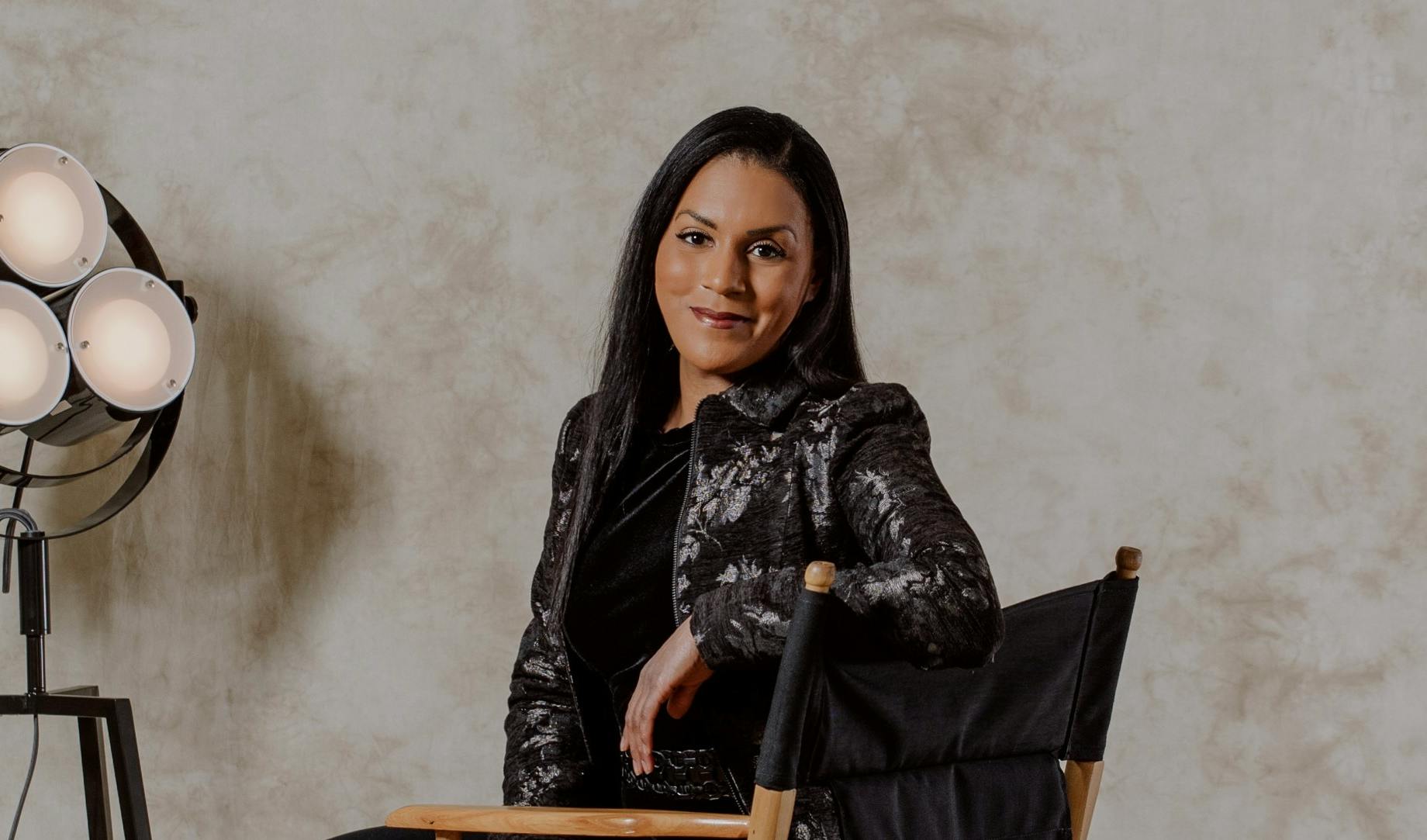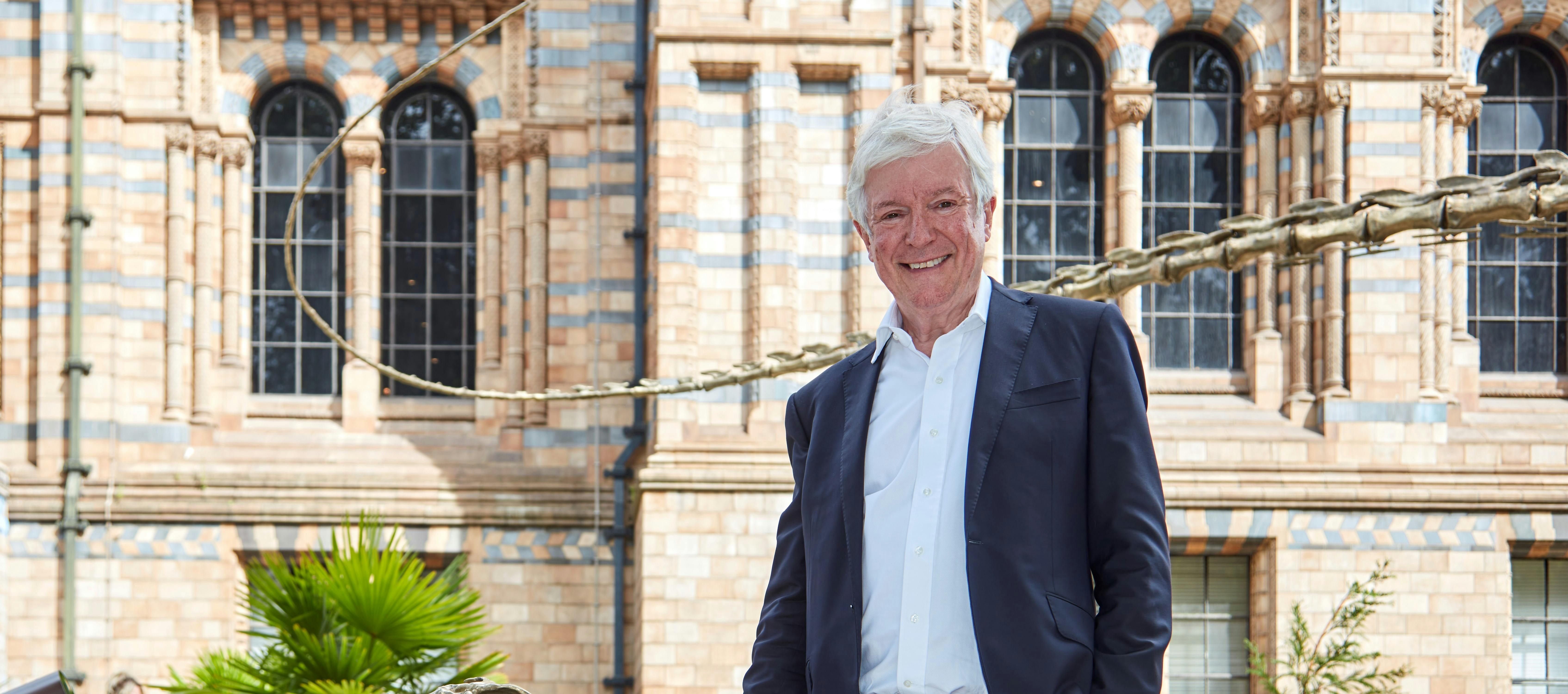
How to sit on a third sector board | Brenda Robinson
Brenda Robinson is an entertainment attorney and producer with extensive experience in the film, television and music industries. She has been an advisor to many entertainment and production companies, including Amazon Studios, IMDb, HiddenLight Productions and Wavelength. Brenda was most recently a financier on the Academy Award-winning documentary Icarus, as well as Won’t You Be My Neighbor. She is an executive producer on numerous projects including the BAFTA-nominated Passing, directed by Rebecca Hall and produced by Nina Yang Bongiovi and Forest Whitaker; the Emmy-nominated United Skates, alongside executive producer John Legend; The Great American Lie by director Jennifer Siebel Newsom; Jump Shot: The Kenny Sailors Story, alongside executive producer Steph Curry and Uncharted, alongside executive producer Alicia Keys.
As a dedicated philanthropist in the arts and entertainment community and advocate on behalf of creative artists, Brenda currently serves as the Board Chair of Film Independent, is on the board of The Representation Project, founded by California First Partner Jennifer Siebel Newsom, and is an advisor to The Redford Center, co-founded by Robert Redford and his son James Redford. Brenda is also on the board of the GRAMMY Museum Foundation. Brenda is a member of The Recording Academy, BAFTA and the Academy of Motion Pictures Arts and Sciences (AMPAS).
What boards, private and third sector, do you currently sit on, and which have you sat on in the past?
Currently, I serve on the boards of several organisations, including The Representation Project, Film Independent, Points of Light and the GRAMMY Museum Foundation. Remarkably, to date, I have only ever served on non-profit boards based in the U.S. The sectors I have served include entertainment (film, music), performing arts (dance, theatre), climate/environmental, and political/civil rights/human rights.
What led you to pursue and accept your first non-profit board role?
I decided to accept an invitation to serve on my first non-profit board out of a desire to engage more meaningfully with the mission of the organisation itself, as well as with the community of [the organisation’s] supporters, for the purpose of uplifting the organisation’s art, vision, and mission.
In your opinion, what are the most significant contributions that serving on non-profit boards has made to your professional growth and leadership style within the for-profit sector?
The most significant benefits I have experienced include the development of leadership skills, organisational management, time management, fundraising and business development, and social relationships. Additionally, there is fulfilment in engaging in non-profit board service and satisfaction in knowing that you are moving the needle on important issues and causes that inspire you.
You serve across a wide variety of boards across the U.S. How do you evaluate non-profit board opportunities before accepting? How do you manage your commitment to each board, balancing your workload with your commitments in the private sector?
After determining which organisations best serve causes or issues that are important to me, I then assess the strength of their board community, followed by their donor community. I evaluate their financial position to get a picture of their stability and management abilities, and also to assess where and how my skillsets can be best put to use. Most importantly, I consider how inclusive the culture of the board is, as well as the audiences they serve or aim to impact. With respect to time management, I often hear the comment that I seem to ‘balance so many things’. My view is that each of these boards is equivalent to an individual client who deserves my undivided attention when my focus is on their work. I believe that no matter how busy a person is, we all choose to make time for things that are most important to us.
In addition to being a devoted philanthropist, you have made many successful for-profit investments in ventures that arguably create positive social impact and change – such as financing the documentaries Icarus and Step. How do you feel your roles as an individual philanthropist and an individual investor intersect, if at all?
A large part of my philanthropy sits at the intersection of storytelling and social impact. I regard my investment in film, in particular, as my form of activism, especially as a complement to my family’s broader civil rights work.
What do you feel is the role of for-profit work in creating social change, in comparison with non-profit work?
On the for-profit side, most corporations or public figures—whether politicians, business leaders, athletes, entertainers, or even social media influencers—have some form of platform to speak and bring attention to important issues. While it can often be a careful line to walk, the difference between for-profit and non-profit platforms is a matter of resources and how these are activated for good in each sector.
Diversity is almost universally described as being important to boards in any sector; yet few boards actually reflect the diversity of our society. How do you think about and create diversity in the organisations you serve (in any sector) - especially as a Chair?
The reality is that in many situations, I may have been the only 'diverse' individual in the room. In response, I saw this as an enormous responsibility to initiate the process of change for an organisation seeking growth and recognising the need for real change.
What advice would you give to board members or Chairs struggling to increase diversity in their organisations?
My approach is always to start with my own network and then encourage board members to cast a wide net within theirs. We seek candidates who are qualified and can contribute meaningfully across different areas. They [candidates] must be sincere about immersing themselves in our work and helping to expand our impact.
What do you consider success to be, and how do you measure the impact of your board service?
Success is measured by the impact of your service and reflected in the quality of the programs you generate and the tangible outcomes for the audiences you serve. For instance: in the film industry, if your development labs, mentorship programs, and financial investments contribute to creating a pipeline of emerging storytellers who use their voices to amplify important issues, this is a clear mark of success.
When have you gotten it wrong?
There have been instances where I may have been underutilised as a resource. Perhaps opportunities to activate my full range of talents and skills were not fully pursued; there may have been instances where we collectively did not capitalise on my leadership potential or utilise the access that was offered. The response is to focus on continuing to bring the best version of yourself to all endeavours, so that you can shine as the contributor you were meant to be.
Susan Boster (interviewer) is the Founder and CEO of Boster Group Ltd., an award-winning consultancy specialising in the development of innovative partnerships between global corporations, cultural institutions and social impact foundations. Current and recent clients include Disney, Meta, Gap Inc., Moët Hennessy, J.P. Morgan, Bacardi, EY, Goldman Sachs, Montblanc and the Leverhulme Trust.
Previously, as Marketing Director at Barnes & Noble and later CMO at News International, Susan oversaw the transitions of both companies to e-commerce and digital platforms, including the launch of barnesandnoble.com.
Susan currently sits on the boards of the Design Museum - where she chairs the Enterprise Committee - The Representation Project, and the Donmar Warehouse. She previously served two terms as Vice Chairman of the Board of the English National Ballet. Susan is regularly featured as a moderator and keynote speaker at conferences such as the World Economic Forum in Davos and the CognitionX Festival of AI and Emerging Technology, and she is a Consultant Lecturer at Sotheby’s Institute of Art.






